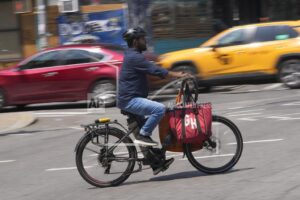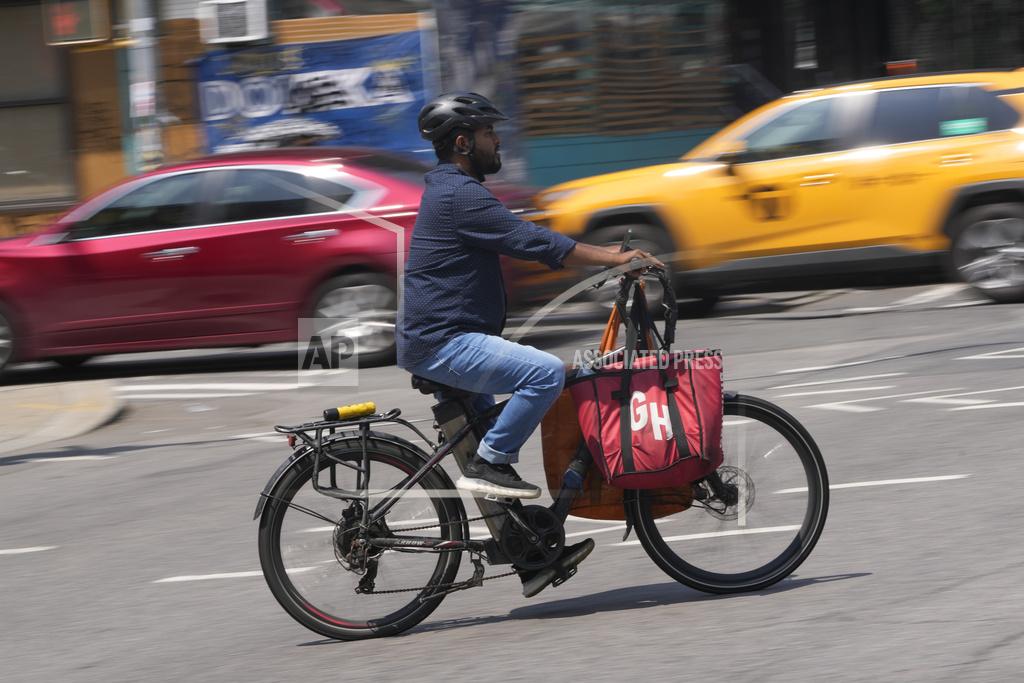New York University has banned e-mobility devices powered by lithium-ion batteries, like e-scooters and e-bikes, from inside its buildings with immediate effect, though campus officials concede that the new safety measure might complicate some students’ and staff’s transportation to campus.
Lithium-ion battery fires are now a leading cause of fire and fire death, according to the Fire Department of New York. 14 people died and 116 were injured by lithium-ion battery fires in New York City between January and October 2023.
“The university felt compelled to act out of concern for the safety of our entire community,” a spokesperson for New York University wrote in an email, noting that e-mobility devices used in accordance with the Americans with Disabilities Act are exempt from the ban.
Two NYU security guards confirmed they are enforcing the university ban, directing riders to use bike racks outside instead. One of the guards, with more than two decades of service, said bike theft around Washington Square Park is commonplace, and that he often sees “evil-doers” with bolt cutters.
One hoverboarding student (who asked not to be named, for fear of getting in trouble), said sometimes the on-duty guard lets him bring his hoverboard into NYU buildings. When that doesn’t work, he hides it in a local business until after class.

Deaths and injuries related to lithium-ion battery fires have risen sharply since 2019, prompting a raft of changes from City Hall, including a trade-in program for food delivery workers, a proposed rule encouraging commercial building owners to install outdoor charging stations, and a 2023 ban on sales of refurbished and uncertified lithium-ion battery devices. However, Mayor Eric Adams acknowledged that e-bikes and e-scooters have become important modes of transport in recent years, due to the big uptick in on-demand delivery services.
“E-mobility devices, including e-bikes and e-scooters, are not the enemy,” said Mayor Adams at a press conference. “When used correctly, e-bikes are a convenient, low-cost transportation option for New Yorkers. They help reduce congestion on our streets and drive down carbon emissions, and they are essential for tens of thousands of New Yorkers who earn a living by making deliveries,” he said.
There are more than 80,000 app-based food delivery workers in New York City, according to the New York Times. One of the biggest, Uber, is embracing City Hall’s initiative. In comments submitted to the Department of Transportation, Hayley Prim praised the proposed charging station rule adding, “we believe there should be future opportunities to expand installations to all areas of the City, including residential zones.”
NYU’s spokesperson acknowledged that the university’s decision “may be viewed as inconvenient by some,” but did not say whether NYU would work with the city to implement safer charging options.
In September, The White House announced $3 billion in new funding for electric vehicle and grid storage batteries, including lithium-ion batteries.








